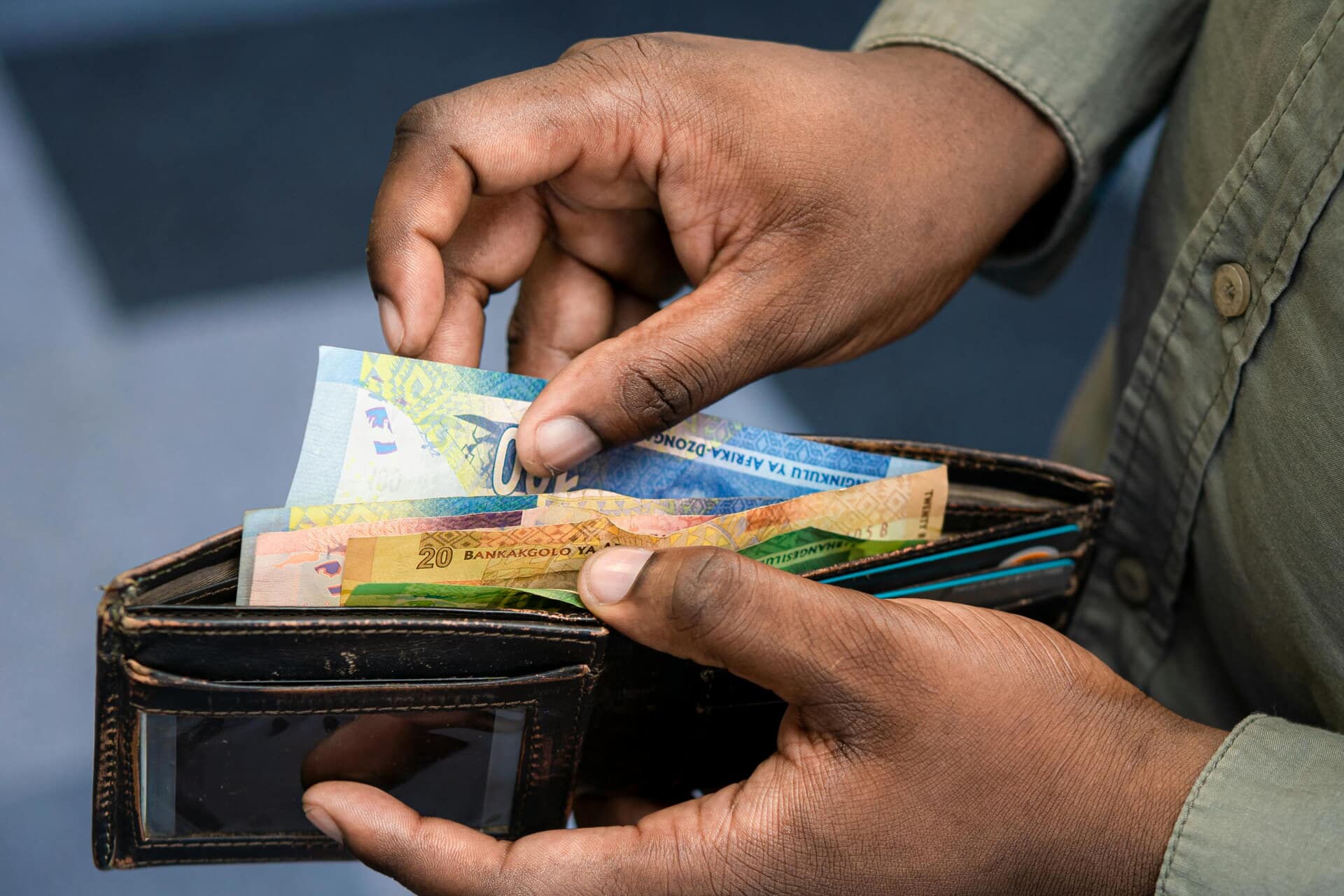Do you ever feel like, if you don’t go out for a R400 lunch at a second-best friend’s acquaintance’s luncheon, you’ll face a slow social death? Have you ever been brought close to tears by a free parking bay, only to realise that you’re about to get cut off by a shitty driver? What about that matcha latte you’re sipping on? Did you pay R10 extra for oat milk that is predominantly seed oil? If you answered yes to some of the above questions, then we bid you a happy welcome to adulthood, welcome to city life in the midst of a cost of living crisis!
This is a game that is neither cheap nor easy, but should you win a few rounds, you could get your hands on some big rewards. These may include: Student loan debt relief, a downpayment for a house, or a big big promotion.
Obstacle levels and challenges include 1) Filling up your petrol tank before the midnight increase 2) Saying no to the pop-up opening scheduled 2 days before payday 3) Making it home with your wallet, keys and dignity intact. Bonus points if you can hide your cat in your apartment block without losing your deposit. Living in one of South Africa’s cities is a game in and of itself.

All imagery courtesy of Pexels

Step 1: Pick Your Fighter
Before you enter the challenge, I implore you to gain a keen understanding of your character, this is a must when the stakes are high. In this case, consider that the stakes are your shelter, your social life, stability, and emotional and physical well-being. So, it’s better to decipher your financial archetype and its origin story early on. According to Vangile Makwakwa, author of What’s Your Money Personality, depending on who you are and who raised you, you will be one of five archetypes. Think of this like your character arc. At your worst, it’s a villain origin story. At your best, it’s the start of the Hero’s Journey.
- The Sweet One wants to spoil the people around them. Their treat-yourself mentality is infectious and generous. They know their friends and family are broke, so they splurge for the casual hang.
Strengths: Pleases people
Weaknesses: People-pleaser
- The Destroyer lives in fight mode. They’re confrontational and combative, and don’t mind moving in their own direction even when it’s uncomfortable. They’re capable of losing and building several fortunes in a lifetime, knowing that half their salary will be spent in the first 5 days of the month anyway.
Strengths: Resilient
Weaknesses: Combative
- The Fixer is crafty, logical and money-conscious. They know what to do and which savings account to draw from in crisis. Their Excel spreadsheets are impressive, and they stand to have a budding career as a CEO. At home, they’re loved by parents and envied by siblings.
Strengths: Altruistic
Weaknesses: Controlling
- The Runaway believes that a gut feeling is the same as a budget. When the numbers don’t add up, they turn on flight mode to avoid the drama, claiming that the energy is ‘toxic’.
Strengths: Independent
Weaknesses: Avoidant
- The Eternal Child says I’m Baby and means it. Their Peter Pan psychology struggles to reckon with responsibility. They may seem like fun, but honestly, they have no idea if they’re tax-compliant.
Strengths: Youthful
Weaknesses: Useless
Step 2: The Name of the Game
Fortunately, like in every game, each player has an opportunity to level up. Makwakwa argues that if we can address our wounds then we can begin to heal our psyche, changing the way we process information and respond to external events and crises. To unlearn the bad money habits we picked up from our upbringing, the sweet one must address fears of setting boundaries, the fixer’s fear of losing control, or the eternal child’s fear of taking responsibility. Her approach reminds us that assigning personal responsibility can help us regain agency. But, as compelling as it is to look inward, one must also remember that external obstacles still exist to throw us off course. In a cost of living crisis, where prices rise and VAT increases but minimum wage stays low and social relief only increases incrementally, the foundations upon which we build our lives are at odds with themselves.
All over the world, industry is impacted by layoffs, labour is displaced by technology, public-interest R&D is halted in the face of fickle politics and grant remits. Globalism introduces new competition, and only the biggest survive. Native businesses struggle against the Temus and Sheins, proving that a squeaky clean record means little in comparison to cheap prices and quick delivery. All of this only to leave work and, on your way home, be reminded of an ongoing housing crisis that fills the streets of one of the ‘world’s best cities’. In that same city, landmarked neighbourhoods, iconic in the country’s social fabric, are at risk of erasure in favour of new duplexes and complexes developed for the digital nomads who spike rental prices and slowly push out the country’s middle class. In the face of such immense obstacles, advanced gameplay seems futile. And yet, we still tell ourselves that budgeting better, put savings away, and joining the 5 am club will fix things.
But even then, city centres tend to trigger our worst financial habits. Distractions compel us to overdo it, to escape into excess and entertainment. Whether you’re blowing all your coin at the club, or jumping between overburdened side hustles, the city brings out our most impulsive, hedonistic behaviour. The towering advertisements and tourist-oriented glamour of miso-marinated restaurants and sponsored parties lure you in like glitter pretending to be gold.
And for a short while, it will be beautifully fulfilling. But for all its delicious decadence, the reality of your credit statement is not easily avoidable. Part of the problem with cosmopolitan living is that it tricks you into believing you have access. But after rubbing shoulders with the 1%, the bill will remind you that you’re still a part of the 99. Yes, the door is wide open, but certain barriers will keep you from getting your foot in.


The Cheatcode?
Marx’s Economic determinism posits that culture, politics and society are fundamentally shaped by market forces. Newton was also a deterministic thinker, who said that rules govern outcomes. Systems can be understood, mastered and optimised. This thinking implies that if we control the variables, then success can follow. Understand the economic cycles, and you can forecast, model or predict a better outcome. But in an economy seemingly ruled by disorder, and a stochastic world where everything is in flux, the only solution seems to be reliance on uncertainty. This leaves us wondering whether we’re trapped in a game with no reward, or simply lost in a side quest.
On the one hand, we are compelled to believe that we have agency, that we exist during a time when anything is possible and opportunity is infinite – that we can pull ourselves out from down and out if we really want to win. It’s more encouraging, and perhaps more productive, to believe that interpersonal change can supersede market determinants. But on the other hand, economic fluctuations leave many feeling powerless. Although, for now, the best we can do is come to terms with what we can control in uncertainty, maybe there’s also value in recognising that this rat race is a little rigged. Try as we might to fix things ourselves, sometimes the game is to blame. If that’s true, then perhaps it’s up to the “developers, the designers and the programmers” to start fixing broken code. Maybe only then will the cost of living become easier to cheat?
Written by Drew Haller
For more news, visit the Connect Everything Collective homepage www.ceconline.co.za














